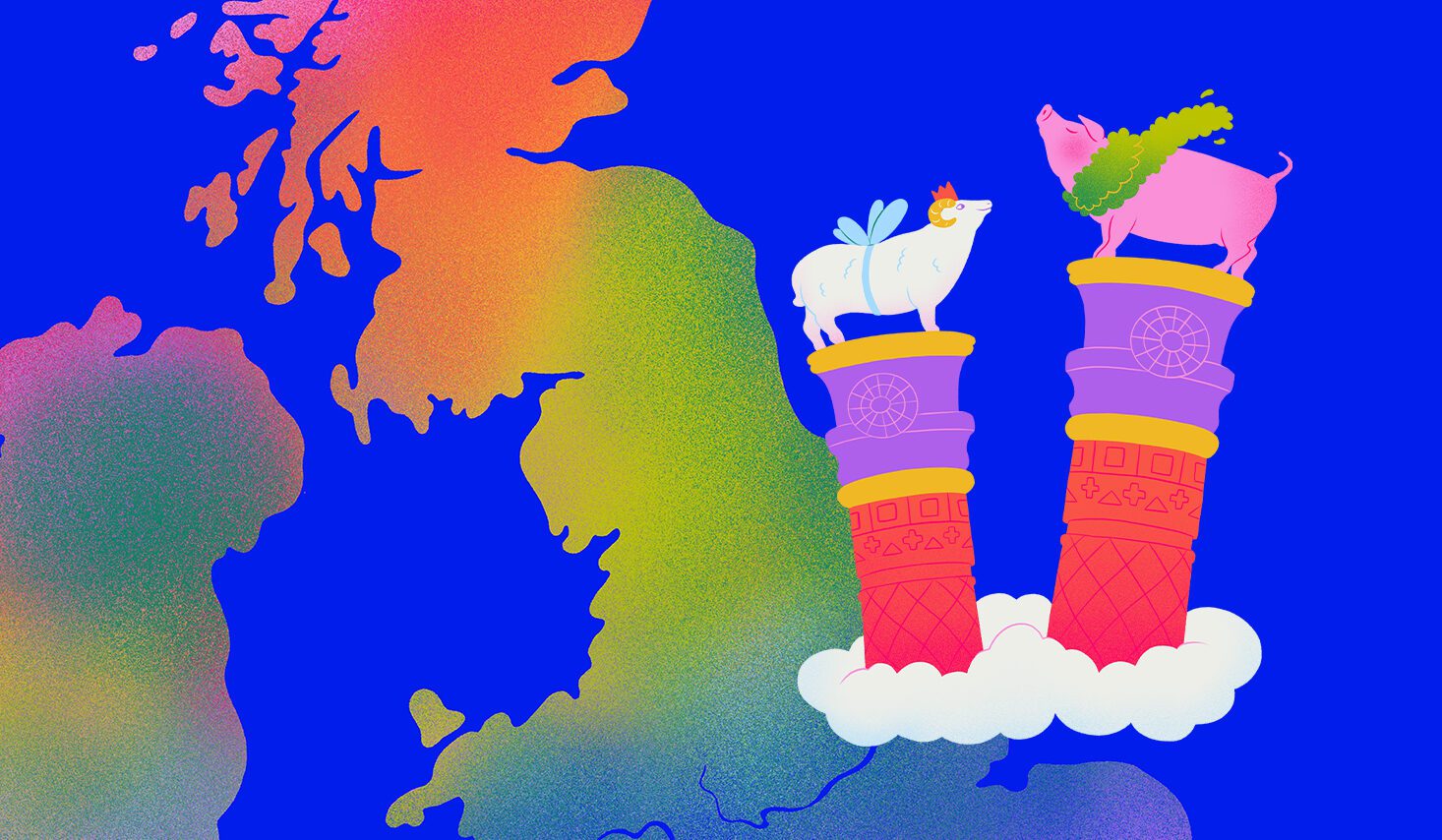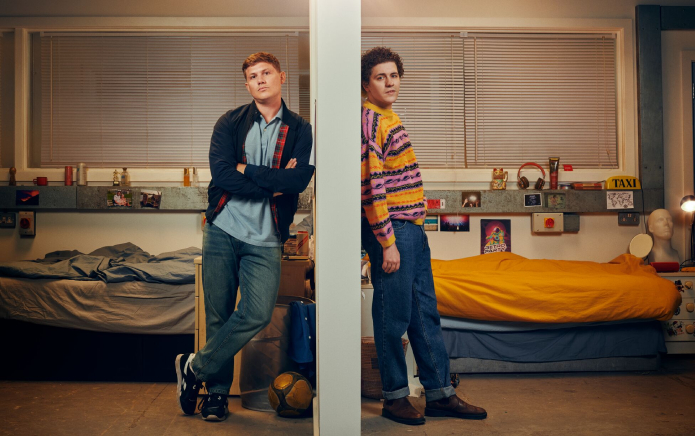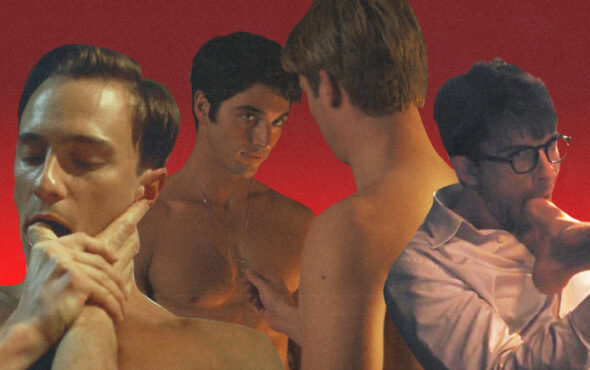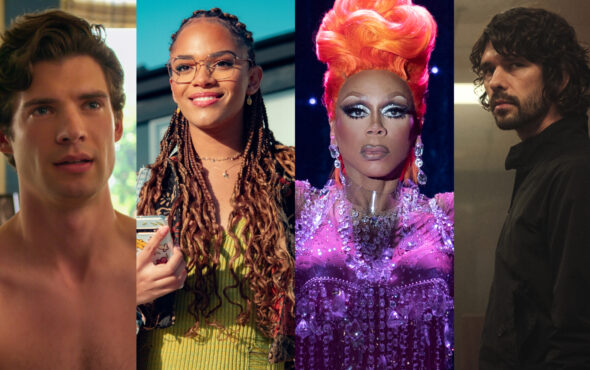
The local Pride scene is finally having its moment and it’s about time. Pride has long stood as an accessible, queer-friendly gateway to a celebratory culture that allows the LGBTQ+ community to uplift one another. For many, major cities such as London, Brighton, and Manchester have served as the locations to create culturally rich hubs that spotlight thriving LGBTQ+ art, music and community. While many of us routinely funnel in and out of these urban hotspots during summer, we must not neglect the smaller regional locations that are fighting to be heard amongst the big banner Pride events. As we proudly mark 50 years of Pride in the UK, GAY TIMES speaks to local pride organisations to learn more about how smaller LGBTQ+ outlets are enriching the wider queer scene.
From Shetland’s first-ever Pride event to Taunton kicking off its historic inaugural Pride parade, smaller destination Pride events are finally getting their time to shine. From impassioned rallies to organised marches, local Pride events are sharing the LGBTQ+ spirit across the UK. Unlike the big ticket Pride events, smaller organisations have to dig deep to find funding, volunteers and support to get started. At Folkestone Pride, event organisers are doing much more than launching an annual parade. Together, the organisation is working to educate and nurture the LGBTQ+ community. “Pride events are much more than a one-day of the year parade. Pride committees working within smaller towns and communities are often committed to being a resourceful safe space, as well as hosting ongoing monthly events,” Folkestone representative Hunter tells GAY TIMES. For smaller LGBTQ+ organisations, Pride doesn’t boil down to a one-day spectacle, but a continued effort to provide safe and educational spaces for the community. “Smaller town Pride organising allows LGBTQIA+ people to find visible queer presence that they might not otherwise have been aware of. They also serve a purpose in continuing to break down misconceptions, and to empower people with knowledge so that our communities can continue to grow upwards together.”
As the support for LGBTQ+ events, including Prides, continues to grow, smaller organisations are powerfully advocating for UK audiences to shine the light on regional, lesser-known locations. “It’s about normalising queer spaces in smaller towns and cities, about visibility for the LGBTQ+ community in their own geographical locations. It seems to be that larger Pride events in larger cities attract an audience from far and wide as people take up the chance to be themselves, but in their own spaces, without local Prides, they can’t do this,” Jen from Doncaster Pride says. “Smaller Prides bring about community coherence and give visibility to the community which enables people to feel more open. They also largely are far less commercialised so represent the community and not the sponsor needs.”
Smaller LGBTQ+ organisers are eager to cater to the local community. However, localised support groups often face barriers that limit the amount of access and resources they have to invest in LGBTQ+ community. “Donating money, volunteering your time and skills, and attending the events are the most beneficial ways to support local Prides,” Hunter encourages. “Folkestone Pride has put on a variety of events so far throughout the year: drag cabaret, roller discos, community walks, sports taster sessions, drag bingo, and many more. We are always looking for people to help organise these events and, to add more fundraising opportunities to our roster, this is the most direct and impactful way people can help support us.” Having grown up outside of London, it’s difficult to overlook how funding for LGBTQ+ events and resources remain concentrated in urban districts, while rural locations are often overlooked. Still, despite the financial hardships, regional cities and towns are drumming up enough interest and excitement over their local Pride events. For Jen, the reignited interest in regional Pride is owed to community resilience: “People [are] feeling the confidence to have a go… to come together in their communities and deliver something that meets the needs of their community in their space. We’ve become used to doing things super locally and small groups coming together for their own Prides is amazing.”
Despite the setbacks, the future of local Prides looks promising, especially as a greater number of regional cities and towns get stuck into celebrating the LGBTQ+ community. As more remote locations get involved in supporting the UK queer scene and its history, there’s a greater opportunity for the messages of Pride to reach generations of all ages. Hunter, from Folkestone Pride, is hopeful for regional Pride events to continue to grow. “More people are understanding their place on the queer spectrum and wanting spaces where they can explore and relax into their true selves,” Hunter explains. “The progress of LGBTQIA+ rights in the UK has been a slow one, especially with the very current targeted attacks on transgender adults and children from government and national media barons. In the face of lacking systematic change, we can celebrate ourselves and revel in queer joy. Pride has always been a protest against the norm and big changes start with small movements.”
Collectively, as we continue to champion the positively evolving landscape of LGBTQ+ visibility, we allow scope for greater representation and accessibility in our Pride events. As Jen outlines, regional LGBTQ+ events will continue to survive if they can sufficiently “sustain themselves” in future years. At the heart of their message, Doncaster Pride urges supporters to donate to ensure the future of local Prides. “Volunteer time is hard [to] recruit, knowledge and skills to deliver Pride is not in abundance and money always very tight. I’d like to see larger businesses start to support local events, but in a collaborative,” Jen tells GAY TIMES. At its utmost, Jen hopes to normalise the existence of Pride in regional locations. “Whether you’re a friend of a member of the community or not, being at a Pride event, being visible, joining in and enjoying the event makes you an ally but also makes other people see Pride is about inclusion.”
So, when you’re next considering a big bash at London Pride and heading up North to let loose in Manchester’s Gay Villiage, consider showing support for a local LGBTQ+ event too. If you can’t physically attend regional Pride, showing support via donations and social media could make all the difference. Pride, at its heart, is about community and change. Regional and local Pride organisations are now having their moment, but let’s make sure they have a future too.
Check out our Instagram and TikTok for more exciting content from our partnership with Channel 4 or visit the partnership hub here!


